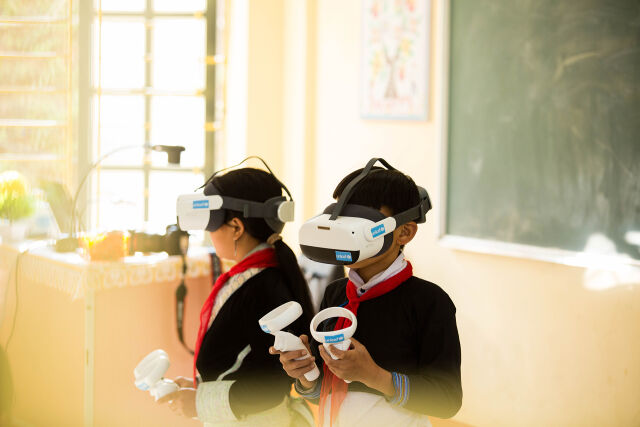Reading skills now – why is literacy important to children?
Today's information society requires people to have better skills in understanding texts. However, more than 500 million children around the world aged 10 cannot read. What is the significance of literacy for a child of the 2020s?

Instead of traditional literacy, Finnish schools are increasingly talking about multiliteracy. It refers to the skills of interpreting, generating and assessing information. Children encounter many types of media texts every day, such as videos and advertisements. Good literacy skills allow people to take a critical look at information presented in different forms.
Illiteracy refers to the lack of mechanical reading skills, i.e. the ability to combine sounds into words and words into sentences. Mechanical literacy is, however, only the first step. It provides a basis for learning new things, understanding written text, developing thinking, expressing emotions, acquiring skills in finding information and many other abilities required in a changing world.
Multiliteracy is about the production and interpretation of information
More diverse literacy skills are required as the available information increases in volume and speed. A person with multiliteracy skills can critically assess texts, look for information from different sources and understand complex causal relationships. Interpreting the stories of social media videos or digital games requires different skills and media criticism than reading school books, for example.
Furthermore, in today's society, people's opinions are also influenced by means such as false information or restricted access to objective information. However, more than half of the children in the world do not have the opportunity to practise reading or media criticism in digital environments.
In order to improve multiliteracy, it is important that children practise producing, modifying, presenting and assessing information in a wide range of contexts and environments by using various tools. For example, making their own videos, playing board games, watching TV shows and communicating with friends on social media support the development of children's literacy skills. However, none of these hobbies alone can guarantee that a child will become a skilful reader.
Literacy is a key to the future
People's literacy skills are unequally distributed. Most of the illiterate people in the world live in poverty and amidst wars. In the poorest countries, only 5% of the children learn to read. At the same time, it is recognised that literacy promotes peace, equality and democracy.
According to the UN Convention on the Rights of the Child, every child has a right to receive information, express their opinion and attend school. Literacy helps improve children's skills in having an influence in their own lives and matters that are important to them. In addition, compassion and the ability to recognise and express different emotions develop through literacy.
Children's reading skills evolve best when they can attend school and receive high-quality education. At its best, the school serves as a place for children to grow and develop towards their full potential.
UNICEF Finland has created learning material on the importance of literacy in cooperation with Moomin Characters for the use of schools.

